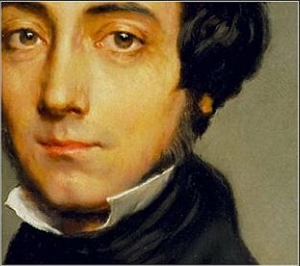 Some segments of the American population receive excellent health care. Statistics on their life expectancy, mortality, and risk factors for disease compare favorably to citizens of other advanced countries.
Some segments of the American population receive excellent health care. Statistics on their life expectancy, mortality, and risk factors for disease compare favorably to citizens of other advanced countries.
What throws off the numbers for the US — the reason our overall statistics are 23 points behind Britain, Canada, France, Germany, and Japan on a scale of 100 — is that there are pockets of the population who lack access to health care and its benefits. The statistics for this segment resemble those of a poor, unsuccessful Third World country. The US ranks 21st out of 21 wealthy countries on child well-being according to UNICEF.
Obviously something needs to be done about US health care. Where we disagree is whether health care is a common good that should be extended to all citizens and what role the government should play in any reform.
Confrontational immigrants opposed to authority
In a recent post, I talked about the US as a nation of immigrants with a strong distrust of government, a sentiment that goes back to the original Pilgrims. Americans seem to dislike their government more than the citizens of other democratic countries.
If you wonder how this happened, consider who chose to come to America. Back in Colonial times, you had to be either adventurous or desperate to cross the Atlantic and begin a new life in an unknown wilderness. In the nineteenth century, immigrants were often men from European countries who were dodging the draft. Many immigrants came because they opposed the religious views of the churches they left behind. We have a legacy of ancestors who weren’t shy about rejecting the things they disliked.
A variation on this theme was noted by de Tocqueville. When he visited the New World in the early 19th century, he noted a distinct lack of aristocracy and little social hierarchy. American culture was more individualistic, more independent, and less inclined to accept and respect authority.
This included a lack of regard for the authority of intellectual elites. De Tocqueville predicted that the emphasis on equality in America would leave the most educated and intelligent citizens confined to powerless intellectual circles, where they would discuss and lament the complex and serious problems facing society.
Middle class from the get-go
De Tocqueville noted: “Among a democratic people, where there is no hereditary wealth, every man works to earn a living. … Labor is held in honor; the prejudice is not against but in its favor.” Despite a favorable view of labor, there has never been a successful American political party that represents the working class. There have been Labor parties, yes, but they have been marginal, usually on the radical left. The US Labor Party of Lyndon LaRouce moved from far left to extreme right. A political party that represented the interests of the working class might have insisted on universal health care.
In other industrialized countries, there’s a large segment of the population that identifies as working class. US citizens, on the other hand, were more likely to think of themselves as middle class.
One reason for this may be geography. The very size of America meant that, early in its history, there was abundant land that was either free or practically free. Even Americans whose income was low could own property, which meant they could identify themselves as middle class homeowners. The legacy of European societies was an aristocracy with a monopoly on wealth, which was inherited in the form of property.
One last point on American history and how we turned out different from other nations: With all that land in America, the population was prone to moving West. If you didn’t like the policies of your local government – or the opinion of your neighbors – you could pick up and leave. You didn’t have to stick around and work out a democratic consensus with your fellow citizens.
Unfortunately that seems to be what we’re up against today, except we can’t move West anymore. Political opinions are polarized. Each side talks only among itself, which has a tendency to make opinions even more extreme. If we can’t talk to each other and find common ground, then democracy has reached a dead-end.
Related posts:
Why is it so hard to reform healthcare? Rugged individualism
Why is it so hard to reform health care? National identity
Why is it so hard to reform health care? Political structure
Why is it so hard to reform health care? The issues are complex
‘Mad Men,’ the sixties and the culture war over health care
Sources:
(Hover over book titles for more info. Links will open in a separate window or tab.)
For many of the historical examples in this post I’m indebted to the following article:
Bruce Vladeck, Universal Health Insurance in the United States: Reflections on the Past, the Present, and the Future, American Journal of Public Health, January 2003, Vol 93 No. 1 (PDF)
Associated Press, Study: U.S. Health Care a Bad Deal, CBS News, March 12, 2009
Danielle Laraque, MD, A Moral Imperative for Children, Journal of the American Medical Association, August 26, 2009, Vol 302, No 8 (subscription only)
Alexis de Tocqueville, Democracy in America


Sorry, comments are closed for this post.